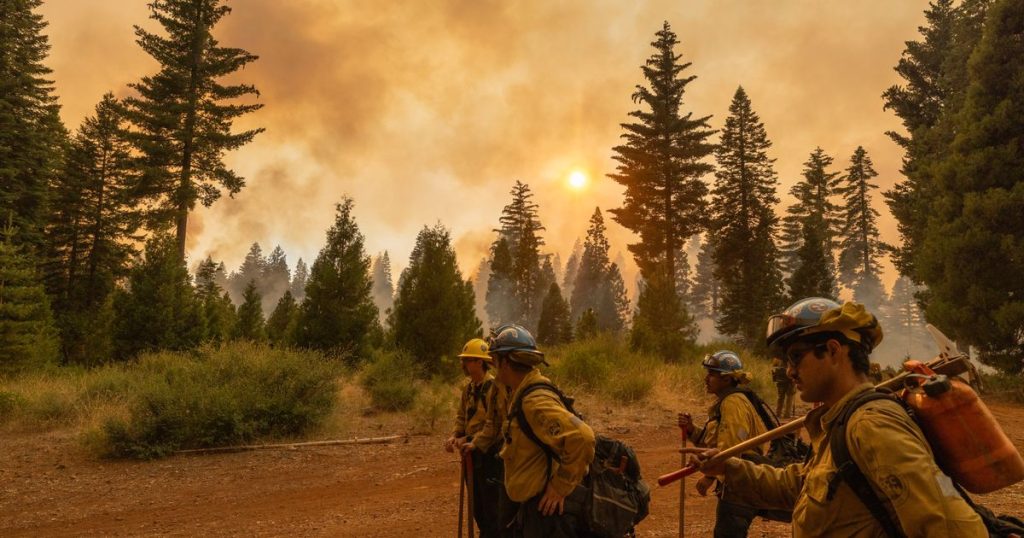The Park Fire, now the fifth largest wildfire in California’s history, has burned over 598 square miles in less than a week. The fire, located 90 miles north of Sacramento, is only 14% contained, with a perimeter of 260 miles. Strong winds and dry vegetation, combined with record-breaking heat in the region, have fueled its rapid spread. Fire officials predict prolonged and severe fires in the state due to above-normal temperatures.
A local man, Ronnie Dean Stout II, has been accused of setting the Park Fire by pushing a burning car into dry grass. He appeared in court on Monday and was charged with felony arson of an inhabited structure or property. Stout denied intentionally setting the fire, claiming the car caught fire on its own due to mechanical issues. However, witnesses allege that he revved the car’s engine and pushed it into a gully, sparking the blaze. Stout, who was found to be highly intoxicated at the time of arrest, could face severe penalties if convicted.
More than 5,500 personnel, along with helicopters and hundreds of fire engines, have been deployed to battle the Park Fire. Over 192 structures have been destroyed, and 19 have been damaged as of Tuesday. Efforts to contain the blaze are ongoing, but its rapid spread and unpredictable nature pose significant challenges to firefighters. The fire’s intensity and extent have prompted concerns about the ongoing fire season in California.
Firefighters have set backfires to contain the blaze near the eastern front of the Park Fire in Chico, California. The sheer size of the fire, combined with difficult terrain and unfavorable weather conditions, make it a formidable challenge to control. The state’s resources are being stretched thin as multiple fires are raging throughout California. The impact of the Park Fire extends beyond the physical damage to structures, causing widespread disruption and fear among local residents.
The Park Fire serves as a reminder of the devastating impact that human actions can have on the environment. Whether intentional or accidental, the spread of wildfires can have catastrophic consequences for the ecosystem, wildlife, and human life. Efforts to prevent and contain wildfires require cooperation and vigilance from all members of society. The consequences of failing to address the root causes of wildfires, such as climate change and human negligence, can be far-reaching and irreversible. Addressing these issues requires a concerted effort from policymakers, communities, and individuals alike.
As the Park Fire continues to burn, the focus remains on containing the blaze and preventing further destruction. The dedication and bravery of firefighters, personnel, and volunteers working tirelessly to combat the fire are commendable. The scale and intensity of the fire underscore the urgent need for coordinated action to address the underlying factors contributing to wildfires. The lessons learned from the Park Fire should inform future efforts to prevent, respond to, and recover from similar disasters, as California braces for a challenging fire season ahead.


